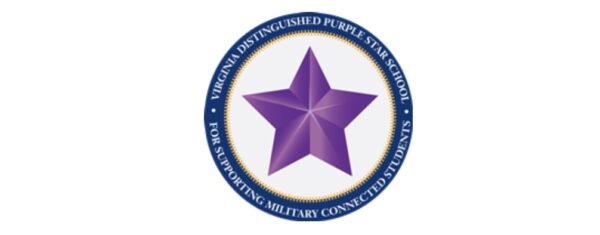 Ed Talk is a biweekly opinion column. The views expressed are solely the author’s.
Ed Talk is a biweekly opinion column. The views expressed are solely the author’s.
Arlington is the home of the Pentagon, headquarters of the U.S. Department of Defense, and of Joint Base Myer-Henderson Hall, which comprises three main installations that were combined during the last round of Base Realignment and Closure: Fort Myer (Army), Henderson Hall (Marines), and Fort McNair (Army). Many of the students living on and off JBMHH attend Arlington Public Schools.
The Virginia Purple Star Designation is awarded to military-friendly schools that have demonstrated a major commitment to students and families connected to our nation’s military. Disappointingly, despite its proximity to the heart of the military, only one APS school (Discovery Elementary) earned the Purple Star designation in 2019-2020. None has earned it for 2020-2021. By contrast, 34 Fairfax County public schools and 21 Prince William County public schools earned the Purple Star designation between 2018-2021. In the other military mecca, 59 Virginia Beach City public schools and 11 Norfolk public schools earned the Purple Star designation between 2018-2021.
To qualify for the Purple Star designation, a school must have a staff point of contact for military students and families who, (i) serves as the liaison between the military family and the school; (ii) completes two online Virginia Department of Education training modules titled “Supporting Our Military-Connected Children in School Settings: Moving them from Risk to Resilience;” and (iii) conducts school-wide professional development that informs staff of the unique needs of and supports available to military-connected students.
In addition, the school must maintain a student-led transition program to include a student transition team coordinator. This program should provide peer support for newly enrolled and withdrawing students to include those that are military-connected. Finally, the school must maintain links to an APS division-wide page dedicated to military student and family supports that includes, but is not limited to, the following:
- Clear and concise information on the enrollment and remote registration process for persons to whom public schools shall be free, including enrollment of military children living in temporary housing
- Information on educational records requests and transfers
- Information on gifted services, advanced academic programs and application deadlines, graduation requirements, diploma options, and home instruction
- Information on the Compact Rules and their application under the Interstate Compact on Educational Opportunities for Military Children
- Information on Special Education services and parental rights, including parental consent
- Other important information such as Impact Aid Student-Parent Survey (Impact Aid programs and grants are designed to assist local school districts that enroll federally connected students), PTA membership, school advisory committees, participation in extracurricular activities and local community support
In addition to the aforementioned site-based requirements, APS would need to assign a central office staff member to be the contact for the school-based liaison and military families and complete at least one of the following:
- Division-wide professional development regarding special considerations for military students and families or
- The School Board passes a resolution publicizing the school division’s support for military students and families or
- The school division hosts a military recognition event designed to demonstrate a military-friendly culture across the school division community
The average child in a military family will move six to nine times during a school career. That’s an average of three times more frequently than non-military families. The majority of moves occur over the summer months, even as late as August. A number of military families shared the following challenges with me:
- Missed deadlines for Extended Day, resulting in a childcare crisis
- Missed opportunities for desired electives. APS doesn’t allow students to select their electives or classes until fully registered, so electives may be unavailable
- Missed deadlines for high school sports tryouts and/or missed leadership opportunities on sports teams and clubs. No reciprocity for prior experience
- Although SB 775 allows incoming military students to fully register for school based on the zone the family intends to reside in (with documentation provided within 120 days), some APS families have been asked to meet onerous requests for documentation before registering their children
- Lack of social-emotional supports: (i) No dedicated counselors equipped to support students with issues of deployment, combat, PTSD, etc.; (ii) no cohorting of military peers to support each other; and (iii) no special recognition or celebration of military students for Month of the Military Child
- Having to start over with a new Individualized Education Plan (IEP) or 504 plan. No reciprocity given for an IEP or 504 from the last school district
- Difficulty keeping track of (or meeting) the additional classes/credits needed for an advanced diploma
- Enduring additional disruptive school changes with boundary changes or program moves while on temporary orders
Many of these challenges could be resolved if APS was a Purple Star school district to better support the children whose parents are laying their lives on the line for us. Let’s do better by our military families.
Symone Walker is a federal attorney and an APS parent. She is Vice President of the Arlington Special Education Advisory Committee (ASEAC), serves on the Commonwealth Attorney’s Community Advisory Board, and is an Executive Committee Member of the Arlington NAACP and Co-Chair of the NAACP Education Committee. Symone is a former candidate for the Arlington school board.


